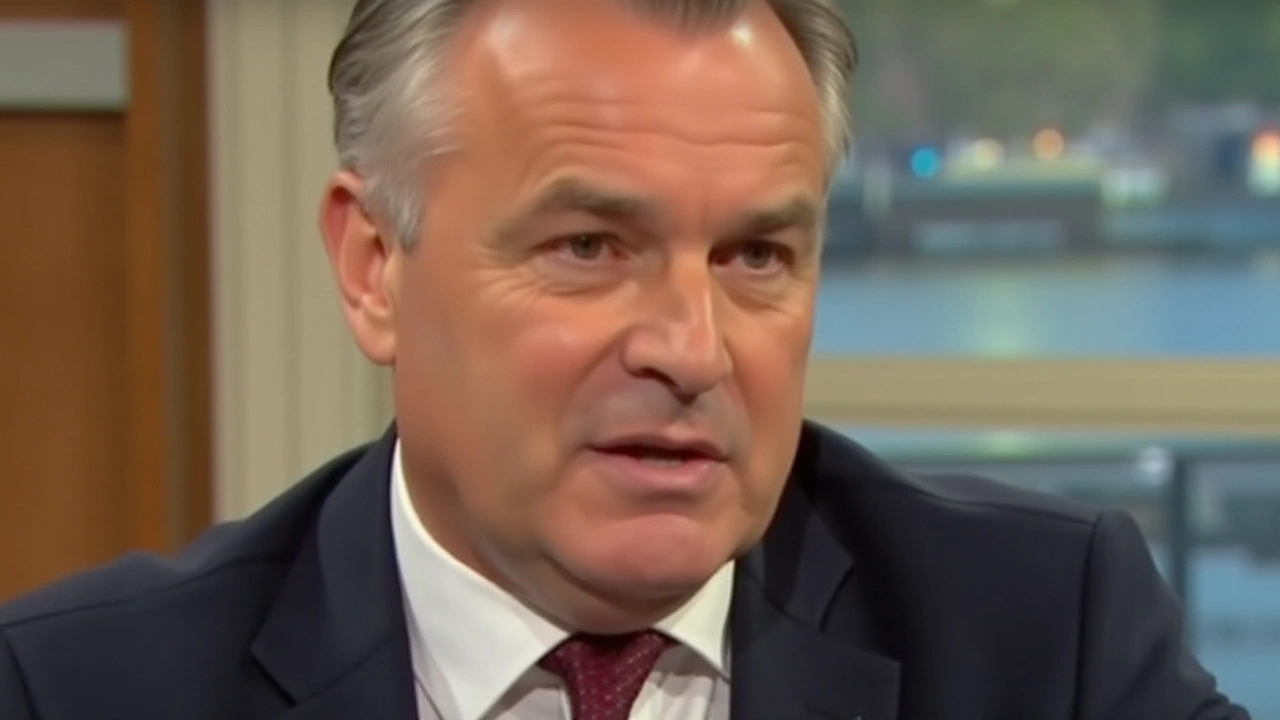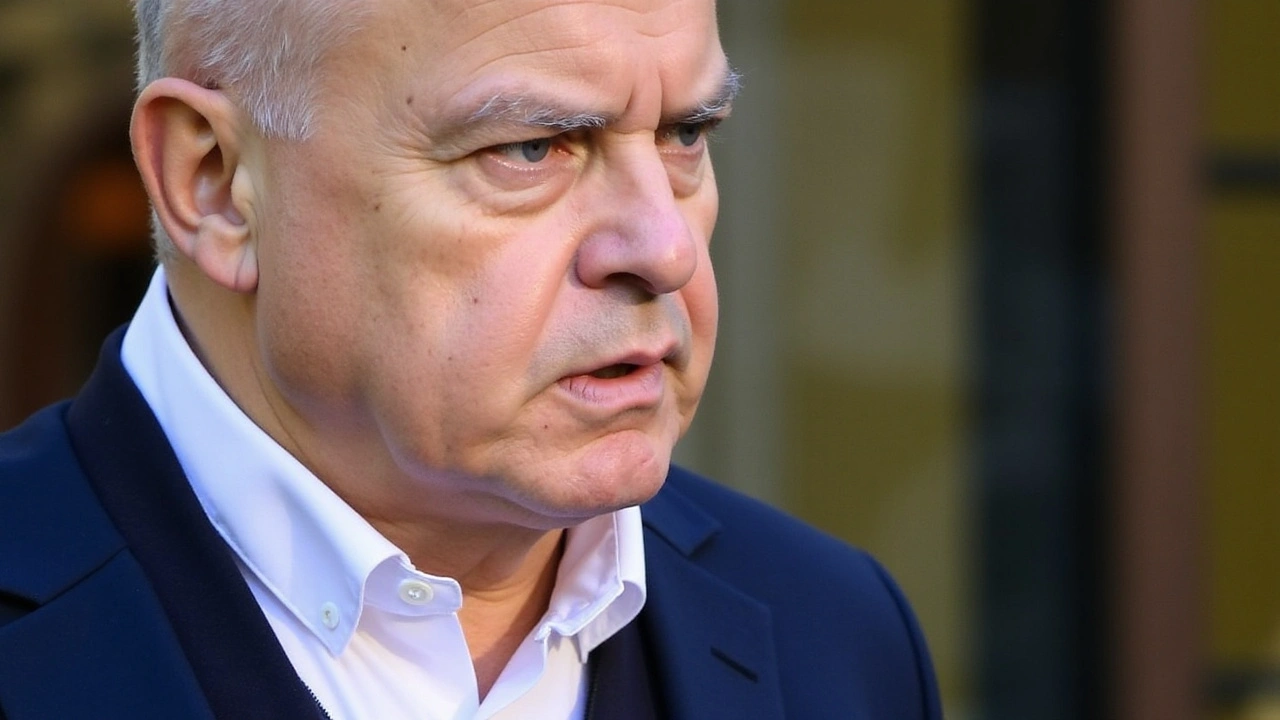17 Sep 2024
- 14 Comments
BBC Journalist Huw Edwards Pleads Guilty
In a case that has shaken the British media landscape, prominent BBC journalist Huw Edwards has pleaded guilty to accessing child abuse images, a crime that carries serious implications. Although the severity of the offense was grave, Edwards managed to avoid a jail sentence, a development that has drawn considerable public and media attention. The legal and ethical ramifications of this plea are widespread and mark an unsettling chapter in the history of one of the world’s leading news organizations.
A Void of Justice?
The legal details surrounding why Edwards avoided a jail sentence remain somewhat murky. Legal exceptions and nuances often play significant roles in determining sentences. Factors such as the nature of the evidence, Edwards’ previous conduct, and cooperation with law enforcement might have been influential. Nonetheless, the public outcry has been significant, with many feeling that justice has not been adequately served. Avoiding jail time in a case implicating child abuse images naturally leads to questions about whether those in high-profile positions adhere to the same legal bar as the public.
BBC's Swift Response
In response to the shocking developments, the BBC has announced that it will conduct an extensive review of workplace misconduct, zeroing in on Edwards’ professional conduct during his tenure at the network. This is not just a reflex action but a calculated move aimed at thoroughly investigating if there were any signs or allegations of misconduct involving Edwards that may have been overlooked or mishandled. The BBC’s approach underscores its commitment to maintaining an ethical and safe working environment, which is imperative for an organization with its global influence.
An Inclusive Review
The BBC’s review process will include a series of interviews with current and former staff to paint an accurate picture of the workplace culture during Edwards’ time. Insiders will provide invaluable insights into whether any warning signs were ignored or if any complaints were inadequately addressed. Analyzing internal policies and their implementation is also pivotal in this review, as it will help identify potential loopholes that may have allowed such misconduct to go undetected. The final goal is clear: to ensure that all employees, regardless of their position, are held to the same ethical standards.
The Impact on Workplace Ethics
Edwards’ situation highlights an essential discussion on workplace ethics, especially concerning those in influential positions. The power dynamics in workplaces, particularly in prominent organizations, can sometimes obscure ethical violations. Thus, comprehensive scrutiny and regular audits of conduct policies are necessary to enforce an environment where misconduct is neither tolerated nor overlooked. The case serves as a stark reminder of the importance of vigilance at all organizational levels.
Implications for Media Trust
The media industry, as the fourth estate, plays a fundamental role in shaping public perceptions and holding power accountable. However, ethical lapses within media houses can erode public trust. The BBC, known for its rich history and journalistic integrity, now faces a reputational challenge. The scrutiny it places on its internal policies and past practices will be critical in regaining audience trust and demonstrating its commitment to transparency and ethical journalism.

Looking Ahead
The final outcomes of the BBC’s review will be eagerly awaited. It will be a test of the network’s integrity and its stated commitment to fostering a safe and just working environment. The larger media industry can also learn from this incident, emphasizing the need for robust systems to prevent and address workplace misconduct. As Edwards’ case unfolds, it will undoubtedly leave a lasting imprint on the standards and expectations from media professionals worldwide.


Emanuel Hantig
September 17, 2024It’s heartbreaking to see a trusted face like Huw Edwards caught in such darkness 😊. The breach of trust hits not just the BBC but every viewer who believed in his integrity. While the legal outcome feels like a loophole, the real damage lies in the erosion of public confidence. We have to remember the victims behind those images and keep their voices loud. Healing starts when institutions own up and act.
Byron Marcos Gonzalez
September 18, 2024Ah, the saga unfolds like a tragic opera-glorious yet grim 😉 the courtroom ballet left many of us gasping for breath the drama never ceases.
Chris Snyder
September 19, 2024From a legal standpoint, the sentencing options often hinge on factors like prior record, cooperation with police, and the specific statutes invoked 😊. In many jurisdictions, first‑time offenders with mitigating circumstances can receive non‑custodial sentences. That doesn’t erase the severity of the wrongdoing, but it explains the judicial discretion. It also underscores why transparent internal reviews are critical for organizations.
Hugh Fitzpatrick
September 20, 2024Sure, because a thorough internal review is exactly what the public craves when headlines scream “justice‑free zone” 🙄. Let’s hope the BBC’s checklist isn’t just another box‑ticking exercise.
george hernandez
September 21, 2024The BBC’s decision to launch an internal review marks a pivotal moment in its corporate narrative. It signals that even the most venerable institutions are not immune to scrutiny. Employees at every level will be summoned to recount their experiences and observations. Their testimonies will provide a mosaic of workplace culture spanning years. The process will likely uncover patterns that were previously dismissed as isolated incidents. Such patterns could reveal systemic blind spots in reporting mechanisms. It may also expose the influence of power dynamics that shield high‑profile staff. By mapping these dynamics the organization can craft policies that genuinely protect vulnerable staff. Transparency will be the cornerstone of restoring public trust. Moreover the review could set a precedent for other media houses worldwide. They might adopt similar frameworks to preempt crises. Critics, however, will argue that reviews are merely lip‑service absent concrete accountability. The BBC must therefore couple its findings with decisive action. Punitive measures, if warranted, should be swift and visible. In the end the success of this initiative will be measured by the confidence it restores among both employees and audiences.
bob wang
September 22, 2024Indeed, the outlined steps constitute a comprehensive approach; however, one must question the timeliness of implementation, the clarity of accountability mechanisms, and the transparency of outcomes-elements that are indispensable for genuine reform 😊. Moreover, the integration of external auditors, the publication of interim findings, and the establishment of a whistleblower protection framework would further bolster credibility; consequently, stakeholders are more likely to perceive the process as earnest rather than performative. Let us anticipate a detailed report, accompanied by actionable recommendations, and perhaps, a public statement underscored by measurable targets 📊, lest the initiative be relegated to a footnote in corporate history.
Seyi Aina
September 23, 2024Honestly, it feels like a Hollywood script-big name, small consequences. The public’s trust gets tossed aside while the elite stroll out.
Alyson Gray
September 24, 2024OMG this is sooo messed up!! it’s like they’re playing a twisted game 😂… those victims deserve far more than a headline and a “maybe”. we cant just sweep this under the rug lol.
Shaun Collins
September 25, 2024Another day, another scandal and the same old headlines. Nothing surprises me now.
Chris Ward
September 25, 2024actually i think the media’s reaction is a bit overblown-people love drama more than facts. maybe we’re all just hungry for the next punchline.
Heather Stoelting
September 26, 2024Keep the convo alive!
Travis Cossairt
September 27, 2024yeah sure let's see where this goes.
Amanda Friar
September 28, 2024So the BBC decides to “review” after the fact-how original 🤔. Are they planning to publish a playbook of mistakes or just a vague apology? It would be nice if they actually held someone accountable instead of sliding into generic PR speak. Maybe next time they’ll start with a proper background check?
Sivaprasad Rajana
September 29, 2024In the end, accountability is the compass that guides any institution. Without it, trust drifts away.